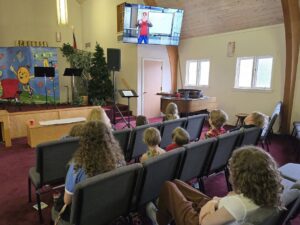By Patrick Lyons, Captain –
Most of us are familiar with first aid and CPR training. It’s the class that helps us be ready to meet physical needs at a moment’s notice. What do we do, however, when the wound cannot be seen? How do we help someone when they need quick emotional help? That is a specialized type of first aid.
Psychological First Aid (PFA) is “a supportive and compassionate presence designed to do three things: 1. stabilize (prevent the stress from worsening), 2. mitigate (de-escalate and dampen) acute distress, and 3. facilitate access to continued supportive care, if necessary.” It is not designed to diagnose or treat emotional issues, nor does it help provide long-term care. You do not have to be a therapist or psychologist to utilize its methods. Think of it like cleaning and dressing a cut—it’s just that the cut is on their heart.
Before I give you three steps to PFA, let us keep our limitations in mind. Just as there are some physical wounds that require a doctor, there are some emotional wounds that require professional mental health. You likely wouldn’t attempt surgery based on your Red Cross First Aid card, and similarly you shouldn’t attempt therapy based on Emotional and Spiritual Care training.
Here is what you can do to help someone in need of PFA.
First, show up and be a resource for any physical needs. Is the person thirsty? Give the person something to drink. Their request may seem unreasonable, and that is okay, sometimes. I was once at a disaster deployment in the humid southern U.S. springtime and an individual came up to the canteen and asked for a blanket. It was obvious that he was not emotionally present with us. We offered food and water, but he was insistent (not in a dangerous or abusive way) that he needed a blanket. It didn’t add up, but I looked through the canteen and, to my surprise, found a lap blanket. I knew it wasn’t big enough to cover his body, but I gave it to him. After he took it, he stared at it for a few minutes. I remained silent and observed. He then looked at me and it seemed like he was able to focus on me for the first time. We sat down, he ate a meal, and as he ate he began to talk about what he was going through.
Your job is similar to mine in the story. The individual is likely not at peace, so you be their peace for a few moments. Display the calm they cannot feel for themselves. This will help keep their stress from worsening. Encourage calmness and help the person take a few moments to regroup.
Second, listen to what the person is saying and ask appropriate questions. Understand, though, that listening does not mean waiting until the end of their comment to fix them. PFA is not healing wounds; it is helping people gain a bit of strength to move forward with their day. Ask them short-term questions to get them focused on what they need to do. “Where are you going after this?” “What do you have to get done today?” “What are your family’s needs?” These types of questions help gently remind the person that there are issues that they can address. We are not diagnosing, we are asking core questions to help them get back to the normal activities of daily life. This is similar to when a child gets an “ouchy.” Initially, their focus is completely on the wound. As we clean and dress the injury, we are calming the child and helping him focus on returning back to normal activities.
Third, help them develop a plan. For the person, getting up from their seat and to their activities may be a big leap. Start by helping him focus on what is next on his list. What actions can he take to achieve the next thing? Help him discover the resources he already has: family, friends, neighbors. Use his words to guide the plan and affirm them. “It sounds like you have a good understanding of all that has to happen.” “Your idea of calling your sister is very good.” Understand that not all people will have many they can turn to for help. In those situations, affirm your belief and confidence in the individual to move forward.
That is it. Did we solve every problem? No, but that isn’t the goal. The goal is to help a person who is temporarily overwhelmed to take confident steps toward doing what they can in a difficult situation. One warning: Be on the lookout for more serious emotional health problems. Is the person displaying impulsive behaviors that are possibly destructive? Does she seem to understand the consequences of her actions? Is she so consumed by the current moment that he cannot see the issue before her? Does it appear she is incapable of completing the functions of daily life? That is when you need to make an exit. Pray with the person, give them a Scripture, and trust them to the Lord’s hands. If the situation is very serious, where the individual could be a danger to herself or others, it is time to call emergency services.
A prayer for today: Father, we will come across many types of people today. Help us to do what we can when we can, and grant us the wisdom to discern when we need to step back. Remind me throughout the day to find my strength in you and seek the support of others as I go about my own daily activities. May your presence be my calm in the storm. In Jesus’ name. Amen.












